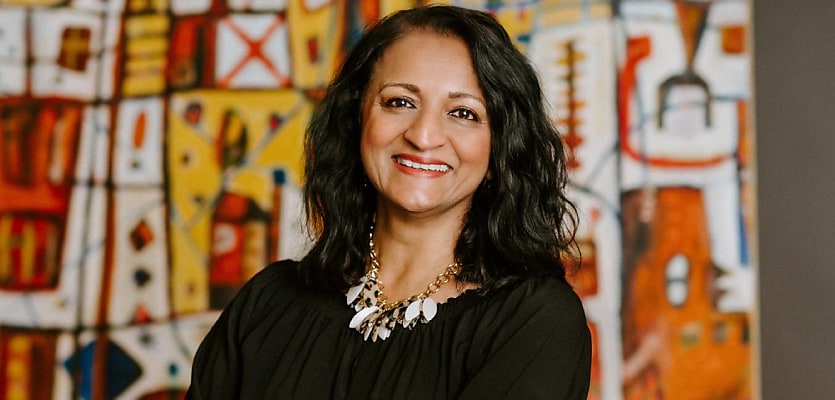This piece is my personal opinion, and it is not a reflection of any business that I am currently associated with.
The debate for the Voice to Parliament has been gaining momentum.
The choice to vote yes or no is entirely up to an individual, however before we do it is important that we do our own research prior to voting. Ensure that the choice we make is the right one for our First Nations people and we will be able to live with this choice in a future Australia.
The Voice isn’t for today, it is for a future Australia where our First Nations people should have a voice on decisions that directly impact them. I see it as a fundamental democratic principal that ensures that Indigenous peoples have a say in policies and decisions that impact their lives. If government were making wholesale changes in a sector – say housing or health, they would consult with that sector.
For years now there has been decisions and policies made for our Indigenous population and not with them. They have been underrepresented in government for far too long and we cannot depend on an elected First Nations person to be the constant representative.
The Voice is the opportunity to change this.
The key priorities to date include that the Voice will help to improve Indigenous health, education, housing and employment. It is also a way to acknowledge sovereignty, build recognition and inclusivity.
If we are able to integrate Indigenous perspectives into policymaking, won’t it lead to more effective and culturally sensitive solutions? Won’t it also help close the gap on significant disparities?
We are being asked to participate in a decision that will impact 3 per cent of our total population who have been here for over 65,000 years and there is no reference to them in our constitution.
Today our Indigenous community is the most marginalised, disadvantaged group in Australia with 30 per cent of Indigenous households in income poverty. Their current life expectancy is 20 years less, some remote communities live in absolute poverty with poor health care and little to no infrastructure. Sadly, they are also the most incarcerated people in the world, making up 29 per cent of the prison population (where the total population is 3 pper cent). Most Aboriginal deaths in custody are due to inadequate medical care, lack of attention and self-harm.
Will the Voice solve these issues? Not directly. We all need to do the work on this as a collective nation. What it will do, however, is ensure that there is Indigenous representation to consult and influence decisions that will help create change. This is long-term work, there is no easy answer.
I am a migrant to this country and I know how lucky I am to have the life and opportunities I have here. I have spent most of my time being the first and only in business (woman and woman of colour). Even at weddings and parties with friends, I am often the only person of colour in the room.
I have enormous empathy for our First Nations people and every time I hear someone, as an example, asking a football crowd to boo welcome to country, I am filled with dread and anxiety, and to an extent, fear.
So, I am also very aware that the Voice to Parliament will not solve the issues around everyday racism, bigotry, inequity and the damage of colonisation.
I do wonder if the fact that over half of Australia’s population is a migrant or from a migrant background – and whether that will have a positive impact on the Voice vote. These communities suffered high incidents of racism during COVID, while Black Lives Matter movement in Australia galvanised many migrant communities and heightened the awareness of the prevalence of racism in Australia and possibly as a result have connected with the Indigenous peoples struggles.
My hope is that we land on a Yes vote. That we recognise that Yes is a start of a long journey that we collectively as a nation have an opportunity to work on. That by having a Voice to Parliament means better consultation, understanding, connection and outcomes for everyone.
How the Voice to Parliament will work is yet to be decided. But we do know it will have no political or legal power nor will they be able to make decisions. We also need to ensure that however we create this, it cannot be undone by future governments.
The Uluru Statement from the Heart invites us to join our Indigenous people on their journey. I am an Island girl at heart. Born in Fiji where one grandparent was a slave and the other was a trader. I have seen first-hand the impact of colonisation, heard and read stories of the terrible acts that were done to my grandparents’ generation. I was four years old when we gained our independence.
Today, Australia is my home and I have an opportunity to help reset the past, of which I didn’t play a part and neither did my ancestors; however, I play a part in the future. And I want a future where incidents of racism are reduced, where our First Nations people have opportunities for better health and wealth, where my grandchildren can look back on this time and say we made the right decision.
I am taking up the invitation and walking with our First Nations people on a journey to a Yes vote, that is only at its beginning. I truly hope that many of you will be on that walk with me.
Re-published from Sadhana Smiles with permission. This article originally appeared here.









You are not authorised to post comments.
Comments will undergo moderation before they get published.